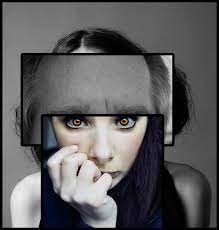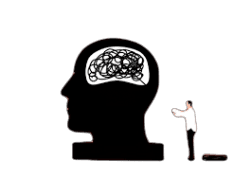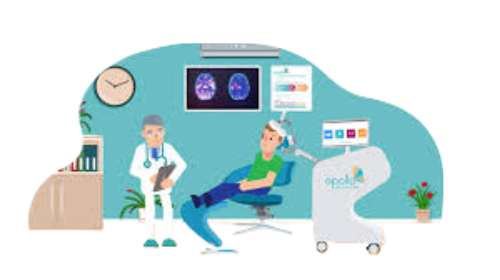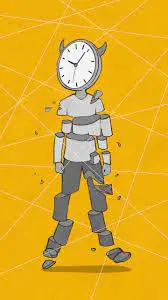Most studies looking into the antidepressant potential of ketamine have excluded patients with depression who have current or past psychotic symptoms due to the drug’s possible schizophrenia-like effects, according to Jolien K. E. Veraart, MD, of the University of Groningen’s psychiatry department, and colleagues. Given that psychotic symptoms are frequently seen in depressed patients (19% in research involving both inpatients and outpatients, or exclusively outpatients, and 42% in studies involving inpatients), this exclusion has significant clinical ramifications.
ketamine
During the 1960s, it was discovered that NMDA antagonists. just like ketamine, more closely induced clinical symptoms of schizophrenia. than other psychotomimetic employed in previous pharmacological models of psychosis.3,4 Specifically, ketamine causes negative symptoms like decreased affect and emotional withdrawal in addition to good ones like delusions and altered perception. Its impact on healthy individuals has been the subject of numerous studies, although the approaches taken and the behavioral reactions that were seen varied widely. Although ketamine is most known for its ability to maintain anesthesia or as a party drug, it has gained a lot of favorable attention recently for being a safe and effective treatment for severe or chronic depression. Ketamine can repair the loss of neurological dendritic “spines” on particular brain circuits by regulating particular brain receptors.

How Does Ketamine Work?
Ketamine was thought to be a strange and elusive drug for a long time. The therapeutic benefits of ketamine have been increasingly apparent in recent years, leading to the development of an innovative, FDA-approved method for the successful treatment of mental health issues. A recent study from Weill Cornell Medicine that was published in the beginning of 2019 confirmed the efficacy of ketamine and explained its mechanism of action in the brain.
Psychiatrist Conor Liston discovered that ketamine repaired dendritic neuronal circuits, thereby mitigating the effects of stress on the brain, by studying the mental synapses of depressed mice. The improvements in behavior and cognition were practically instantaneous. Shortly after the treatment, new neural pathways known as the “spine” emerged.
“These findings suggest that increased ensemble activity contributes to the rapid effects of ketamine, while increased spine formation contributes to the sustained antidepressant actions of ketamine,” commented Yale neuroscientist Ronald Duman upon learning about the work. Ketamine works to relieve depression. By focusing on glutamate receptors, which are the brain’s excitatory impulses.
In essence, ketamine works differently from conventional mental health drugs in that it aids in the revolutionary restoration of stress-related harm. When used correctly, ketamine aids in the brain’s reconstruction of previously damaged neural networks. This enables communication between the brain and the central nervous system, which gives the body the necessary rest, tranquility, and pain alleviation. Ketamine is also a relatively stable medication.
Ketamine Help Schizophrenia

Similar to ketamine therapies for autism and bipolar disorder, ketamine appears to be a good substitute . because it can specifically target the excitable impulses in the brain, or glutamatergic transmission. Although the bulk of conventional drugs target dopamine, this approach is rarely effective. in fact, it is ineffective for the vast majority of patients who suffer from severe mental health issues.
This is really encouraging news for scientists searching for treatments for persons with schizophrenia. Researchers are finding that ketamine may be significantly more effective than conventional medication in helping schizophrenic patients who require increased sensory processing and higher-level abilities, like memory. Furthermore, according per Dr. Joshua T. Kantowitz, ketamine exhibits considerable promise in treating schizophrenia and also in advancing medical knowledge regarding the disorder.
But treating schizophrenia with ketamine therapy is more complicated than treating bipolar disorder. Given the lengthy variety of symptoms associated with schizophrenia, it’s critical that the patient and the physician are both well-versed about the symptoms that are most prevalent and obvious. Due to the nature of schizophrenia, ketamine therapy may help certain symptoms (such as memory loss and/or repetitive behaviors) while worsening others (such as hallucinations). As a result, it is unlikely that ketamine will be used to treat schizophrenia for a long time as researchers and medical professionals work to better understand ketamine, schizophrenia, and how the two interact.
Ketamine also help
- Disorders related to anxiety.
- syndrome of chronic fatigue.
- Numerous forms of depression.
- Major depression, or uni-polar depression.
- Manic episodes.
- depression following childbirth.
- sexual argues
- OCD, or obsessive-compulsive disorder.
- PTSD, or post-traumatic stress disorder.
- Suicidal thoughts.
Compared to typical antidepressant drugs or other therapies alone. ketamine therapy may help you recover from a severe depressive episode more quickly and save you money, time, and suffering.
What to anticipate from a ketamine infusion therapy
We understand that ketamine can be frightening for patients since they don’t know what to expect. how to react, or how they will feel during the treatment. even though it is a very safe medication when given by professionals.
Dr. Steven oversees the ketamine treatment program with the ultimate goal of assisting his patients . in achieving the greatest results possible, working in tandem with his caring and highly skilled staff. Before you choose to become a patient-guest at our center. we take the time to address all of your treatment-related questions. You may be confident that our medical staff will treat you with consideration and compassion while you are a patient at Reichbach Center.
All of our patients and guests have access to private treatment rooms. We establish a low-stimulation setting so that you may concentrate on your thoughts and feelings during the process. To guarantee your total comfort and safety throughout the procedure. our highly skilled Advanced Cardiovascular Life Support (ACLS) certified medical specialists will continually monitor your blood pressure, breathing, and heart rate and rhythm.
The ketamine infusion regimen for each patient will be customized based on their specific needs. And also general health, and other important variables. While some people might only need a few infusion treatments to see the desired effects, others could need a longer-term strategy.
Ketamine usually only has mild adverse effects when used slowly. After ketamine infusions, there can be some residual fatigue into the morning, but there are no long-term adverse side effects from the treatments. One day after your ketamine infusion, you can resume your normal activities and work. However, you will need someone to take you home after the treatment.




Pingback: What is Sullivan theory Interpersonal theory?
Pingback: Theories of Schizophrenia: symptoms & factors -
Pingback: Schizophrenia: symptoms, causes, diagnosis & treatment. -